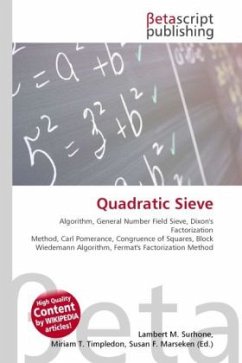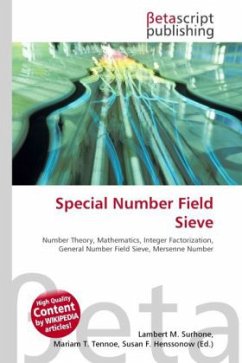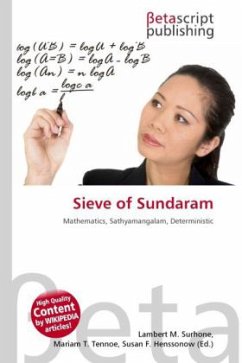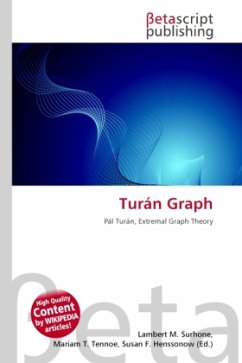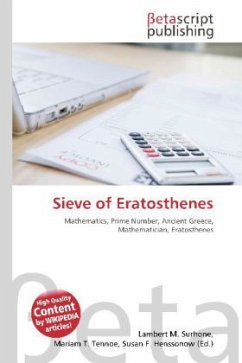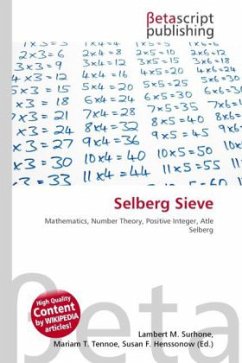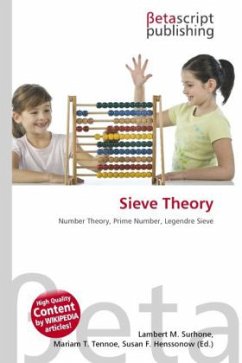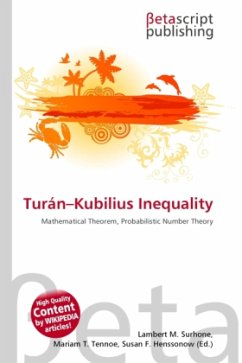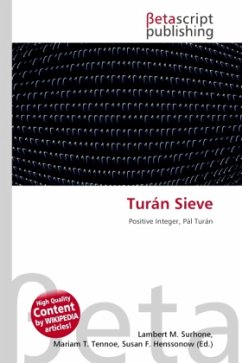
Turán Sieve
Versandkostenfrei!
Versandfertig in 6-10 Tagen
23,99 €
inkl. MwSt.

PAYBACK Punkte
12 °P sammeln!
High Quality Content by WIKIPEDIA articles! In number theory, the Turán sieve is a technique for estimating the size of "sifted sets" of positive integers which satisfy a set of conditions which are expressed by congruences. It was developed by Pál Turán in 1934. In terms of sieve theory the Turán sieve is of combinatorial type: deriving from a rudimentary form of the inclusion-exclusion principle. The result gives an upper bound for the size of the sifted set. Let A be a set of positive integers x and let P be a set of primes. For each p in P, let Ap denote the set of elements of A divisi...
High Quality Content by WIKIPEDIA articles! In number theory, the Turán sieve is a technique for estimating the size of "sifted sets" of positive integers which satisfy a set of conditions which are expressed by congruences. It was developed by Pál Turán in 1934. In terms of sieve theory the Turán sieve is of combinatorial type: deriving from a rudimentary form of the inclusion-exclusion principle. The result gives an upper bound for the size of the sifted set. Let A be a set of positive integers x and let P be a set of primes. For each p in P, let Ap denote the set of elements of A divisible by p and extend this to let Ad the intersection of the Ap for p dividing d, when d is a product of distinct primes from P. Further let A1 denote A itself.



